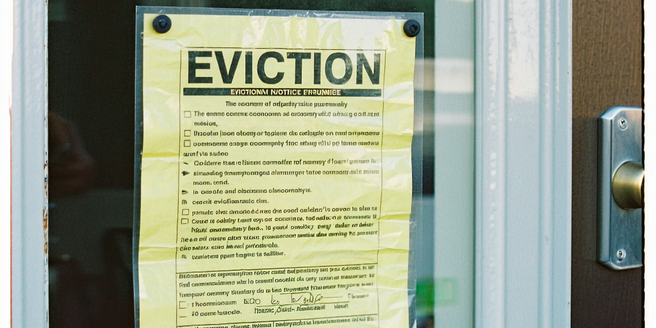Psychological Impact Of Ever-increasing Rent

Understanding the Growing Concern
The steady climb in rent prices has become a pressing issue for many households. With salaries not increasing at the same rate as living expenses, families and individuals face financial strains. This rapid rise in rent has resulted in an affordability crisis, where many are forced to allocate a significant portion of their income to housing. This scenario can lead to a diminished quality of life as essential needs like education, healthcare, and nutrition might be neglected to make ends meet. The concern grows as rent prices soar, prompting discussions on economic disparities and the urgent need for reforms to ensure housing affordability. Understanding this growing concern requires a comprehensive view of the market dynamics, wage stagnation, and the broader socio-economic factors contributing to this complex challenge.
Financial Stress and Mental Well-being
The increasing cost of rent is directly linked to heightened financial stress, which can significantly affect mental well-being. When individuals allocate a larger portion of their income to rent, they often face increased anxiety and uncertainty about their financial future. This stress can lead to a slew of mental health issues, including anxiety, depression, and sleep disorders. The constant worry over meeting monthly rental payments can disrupt emotional balance and negatively impact one’s overall quality of life. Furthermore, financial strain may erode personal relationships and lead to social isolation. Addressing the interplay between financial stress and mental health is critical to helping renters maintain their well-being. It’s vital to explore resources and strategies that can alleviate the psychological burden faced by those struggling with rent-induced financial stress.
Social Implications and Community Ties
The constant upward trajectory of rent prices doesn’t just affect individuals; it has broader social implications that can weaken community ties. With rent becoming unaffordable, long-term residents may be forced to relocate, disrupting existing social networks and community relationships. This displacement can lead to decreased community engagement and a loss of social capital, as people spend less time in their community and focus more on commuting or working longer hours to afford housing. Additionally, frequent moving can disrupt children’s education, leading to further societal repercussions. Strengthening community support systems and fostering inclusive policies is essential to mitigating these social impacts and ensuring that communities remain vibrant and interconnected. A stable housing environment is crucial for fostering strong community bonds and supporting collective resilience.
Coping Mechanisms for Renters
Renters facing ever-increasing housing costs often need to devise coping strategies to manage their financial burden. One effective approach is to budget meticulously, ensuring every dollar is allocated wisely. Sharing living spaces with roommates can also alleviate some financial pressure, making higher rents more manageable. Additionally, renters may explore alternative housing arrangements, such as co-housing communities, which offer the potential for reduced costs and shared resources. Financial literacy programs can also empower renters by teaching them how to navigate complex rental markets and make informed decisions. Emotional resilience is equally important; seeking support from community groups or mental health professionals can help address the stress associated with high housing costs. Highlighting these coping mechanisms can provide valuable insights for individuals striving to balance their budgets and maintain a sense of security.
Policy Considerations and Advocacy
Addressing the upward spiral of rent costs requires robust policy considerations and proactive advocacy. Regulation of rental markets through rent control or stabilization measures can provide temporary relief, but thoughtful long-term strategies are necessary for sustainable change. Housing policies must focus on increasing the supply of affordable housing, incentivizing developers to build lower-cost units and improving assistance programs for low-income renters. Encouraging mixed-income developments can enhance inclusivity and diversity within communities. Advocacy plays a pivotal role in influencing policy reforms, as community leaders and affected individuals raise awareness and lobby for change. Through collaborative efforts, stakeholders can push for policies that ensure housing remains a basic human right, promoting equitable access to safe and affordable living conditions for all.
Future Outlook and Sustainable Solutions
As housing markets continue to evolve, it’s crucial to envision a future where sustainable solutions address rising rent concerns. Innovative approaches, such as embracing modular and prefabricated housing, can expedite construction processes and reduce costs. Urban planning should prioritize sustainable development practices, balancing growth with environmental stewardship. Investing in public transportation and infrastructure can enhance accessibility, making diverse housing options viable for residents across different income levels. Moreover, technological advancements in construction and property management offer promising avenues for efficiency and cost-savings. The future outlook depends on collaborative efforts among policymakers, urban planners, and communities to implement forward-thinking solutions. By fostering resilience and adaptability, these efforts aim to create a housing landscape that’s sustainable, inclusive, and affordable, ensuring well-being for generations to come.